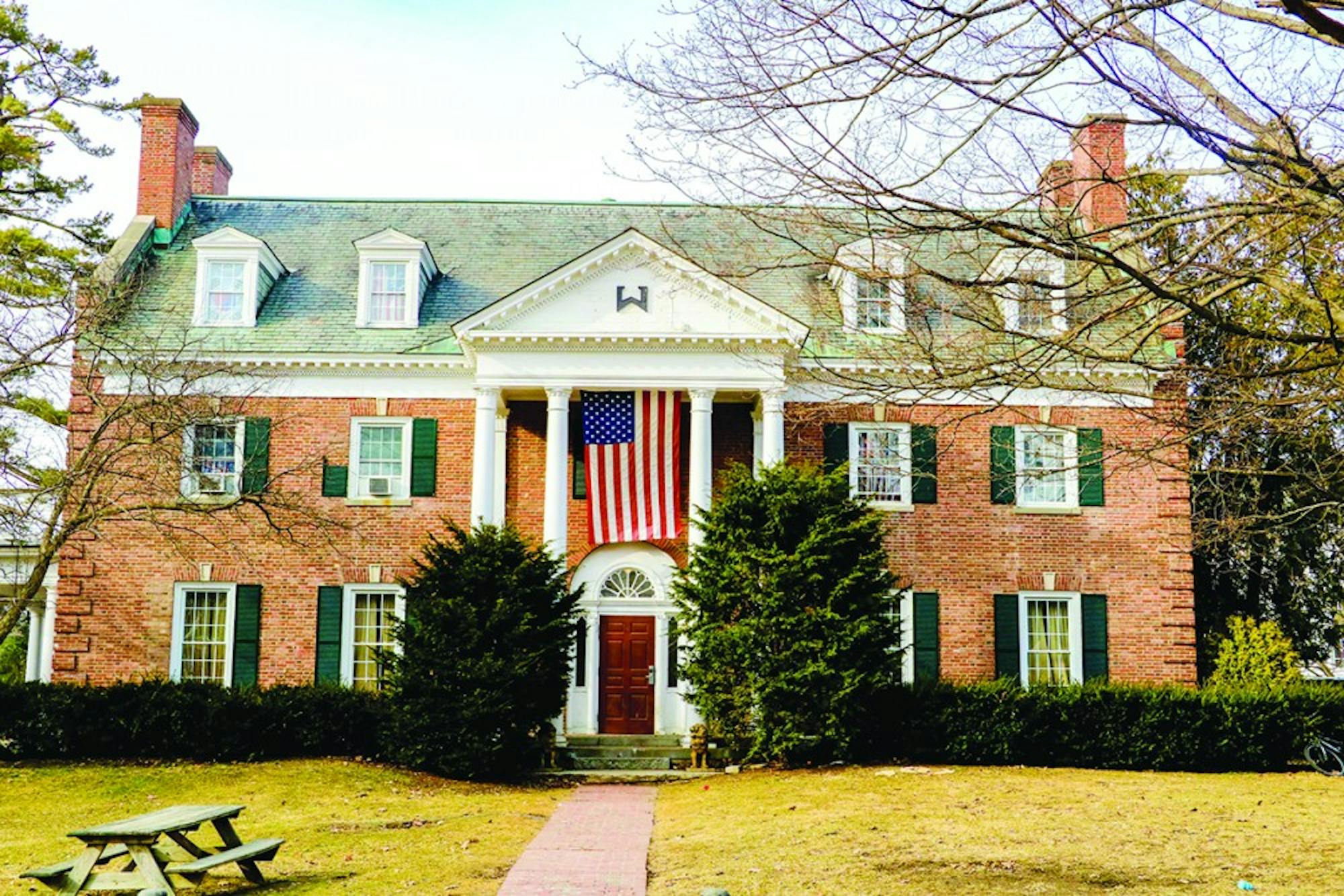Last month, the New Hampshire Supreme Court largely ruled in favor of Hanover in the case of New Hampshire Alpha of SAE Trust v. Town of Hanover. As part of that case, in April 2018, three Dartmouth fraternal organizations — Phi Delta Alpha Corporation, Zeta Association of Psi Upsilon and Trustees of Alpha Omega Chapter of Beta Theta Pi Fraternity — filed an amicus brief arguing that the town of Hanover unlawfully delegates governmental authority to the College, an abutter who may have a vested interest in obtaining Sigma Alpha Epsilon’s property. The Court’s ruling addressed this concern, but the existence of the amicus brief highlights a campus climate in which tensions remain high between the College administration and Greek organizations affected by the ruling.
In the March ruling, the Court remanded back to the Hanover Zoning Board Association the decision as to whether SAE itself qualifies as an institution. According to Hanover director of planning, zoning and codes Robert Houseman, the ZBA defines an institution as either educational, religious or governmental. If the ZBA determines that SAE is an institution, the chapter house will no longer violate the town’s Amended Zoning Ordinance, which requires student residences to “[operate] in conjunction with another institutional use.”
Despite the ruling, the pending case and amicus brief highlight prevailing issues regarding the relationship between fraternities and the College. Since 2015, Dartmouth has revoked its recognition of two private fraternal organizations — Alpha Delta and SAE — and witnessed the charter revocation of Sigma Phi Epsilon. The departure of these houses “[has] raised fears of a campaign against fraternity culture,” according to a 2017 Valley News article. As discussed in the amicus brief, many affiliated students operate under the belief that their property rights exist “at the whim of Dartmouth’s unilateral and discretionary decision-making.”
On Feb. 5, 2016, Dartmouth revoked its recognition of SAE after the national charter of the Dartmouth chapter was suspended. A week later, the Hanover ZBA notified the SAE Trust that the chapter house was in violation of the town ordinance. The ZBA further stipulated that SAE must discontinue use of the chapter house or pay daily fines. SAE appealed to the ZBA — the beginning of a long string of appeal cases, each of which favored Hanover on almost all accounts. Eventually, the case reached the New Hampshire Supreme Court, where the 2018 amicus brief was filed.
An amicus brief is a legal document filed by a non-litigant — the amicus curiae — that provides information relevant to the pending case. Attorney Sean Callan ’90, who represented the amici curiae in development and filing of the brief, said the Latin term “amicus curiae” translates to “friend of the court.”
“Other parties, who contend that the result or outcome of a particular case will impact them, are permitted to file a ‘friend of the court’ brief,” Callan said. “[Phi Delta Alpha, Psi Upsilon and Beta Alpha Omega] house corporations were interested in the outcome of this case because they are houses subject to the same zoning ordinance as SAE.”
The amici curiae asserted the College’s unrestricted de-recognition authority amounts to an unlawful delegation of governmental authority. The brief cited the Dartmouth Corp. of Alpha Delta v. Town of Hanover case, in which the Court construed the ordinance to require that a fraternity “have some union, association or combination with the College.” In other words, a student residence must operate in conjunction with the College to remain in compliance with the ordinance. The amici curiae stated that once Dartmouth revokes its recognition of a fraternity, the chapter house no longer fulfills this provision. Absent procedural protections, Dartmouth’s de-recognition authority allows the College to make conclusive determinations about property owned by private fraternal organizations.
Furthermore, the amici curiae argued that the College’s de-recognition of SAE was “at best arbitrary, and at worst, part of a premeditated plan to acquire the [chapter house].” The brief also stated that the current delegation of power violates U.S. and New Hampshire Supreme Court precedent.
The New Hampshire Supreme Court responded that de-recognition is not the “sole determinant” in assessing compliance with the Ordinance. Instead, private fraternal organizations must prove that they broadly “operate in conjunction with an institution.”
“This case doesn’t fully cede zoning authority to the College because the [phrase] ‘operates in conjunction with another institutional use’ could mean more than just recognition,” Callan said. “The court followed that intellectual pathway to avoid answering whether this was an unlawful delegation of governmental authority.”
Attorney Laura Spector-Morgan, who represented the town of Hanover before the New Hampshire Supreme Court, said recognition tends to indicate “conjunction.”
“Conjunction must be demonstrated by the fraternity, and is usually demonstrated by recognition by the College,” Spector-Morgan said. “Neither the [ZBA] nor the courts have defined what other facts may be presented to demonstrate conjunction.”
Some affiliated students do not believe the current administration threatens the institution of Greek life at Dartmouth.
“I think there are tense feelings between the administration and other Greek houses,” Eric Forehand ’21 said. “But I don’t think [those feelings] will crumble the institution of Greek life on campus.”
He continued that many of College President Phil Hanlon’s reforms, including the creation of alternative social spaces, have not gained traction.
“If the administration really wanted to [end Greek culture on campus], they would have taken more drastic measures by now,” Forehand added. “I don’t see Greek social culture ending anytime soon.”




